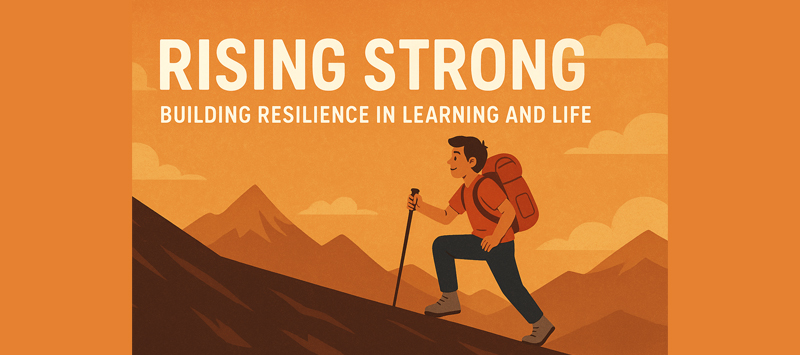
Rising Strong: Building Resilience in Learning and Life
 |
Dr. Thejas Gigy Thomas Assistant Professor, Department of English, School of Humanities & Social Sciences, Kristu Jayanti (Deemed to be University), Bengaluru |
Success is typically understood as a linear pathway paved with scores, accomplishments, and honours in education. Students' journeys are a combination of woe, blunder, indecision, obstacles, and exceptions. What determines successful learners is not whether they experienced a problem, but their ability to rise above it. This quality is called resilience.
Why Resilience Matters
Today's academic world comes at students from all directions—exams, projects, internships, and the expectations from families and society. Knowledge and skills are valuable, but the ability to bounce back keeps students moving.
Resilience in the Classroom and Beyond
Handling academic setbacks: Not every test or project will go perfectly, but resilient students see mistakes as learning opportunities.
Time and stress management: Students must balance academic responsibilities, extracurricular involvement, and personal life, which requires flexibility and self-care.
Overcoming personal challenges: While life outside the classroom can throw curve balls in ways an individual didn't plan for, resilience helps students stay focused and keep perspective.
Building Resilience: Small Changes that Matter
- Fail Forward: Every misstep is a way to learn something new!
- Stay linked: Staying connected with your best friends or mentors can provide support and encouragement in challenging times.
- Practice mindfulness: Simple habits, such as journaling, engaging in physical activities, and meditating, provide a path to strengthen emotional balance and well-being.
- Establish realistic outcomes: Different milestones from the big project moving toward a goal will be less stressful than trying to accomplish everything simultaneously.
A Message to Students
Please remember that education is more than just marks and certificates. It's about development—intellectual, emotional and social. Every challenge you encounter develops you into a stronger, wiser and more caring person. Resilience ensures that no matter what happens, you will move forward.
inal Thought
In our constantly changing world of education and life, resilience is one of the most critical attributes a student can learn. Resilience turns obstacles into opportunities and failures into motivation for success. It is not about how high you fly but how well you rise when you fall.